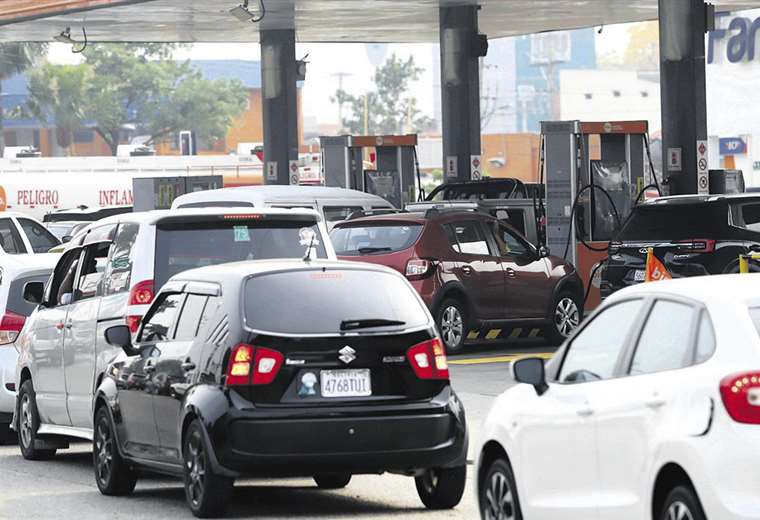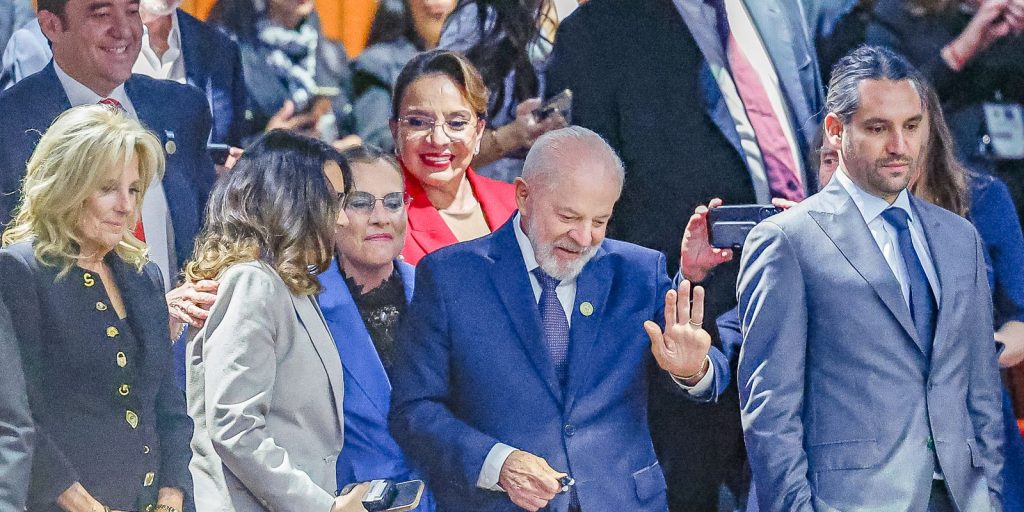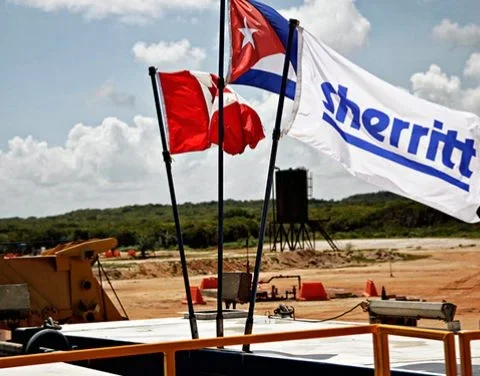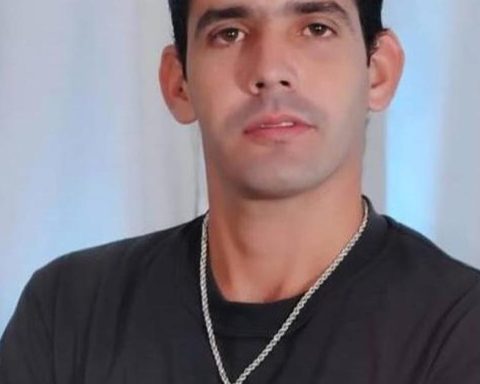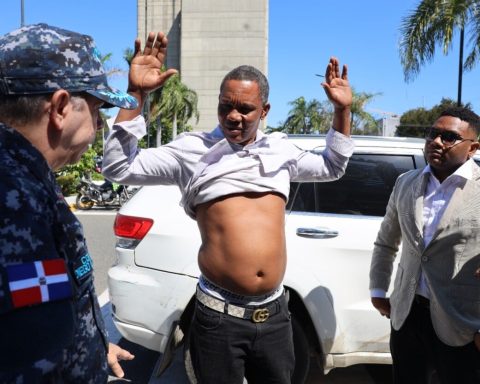October 2, 2024, 7:41 AM
October 2, 2024, 7:41 AM
It’s not just in Santa Cruz anymore. From a humble motorcycle taxi driver in Trinidad, Beni, to the minibus driver in Potosí or La Paz, or the loaded trucks that come and go along the paved arteries, everyone suffers from fuel shortages. Since Sunday night, the queues have returned, and not only in the eastern capital; The phenomenon occurs on a national scale. Meanwhile, the National Hydrocarbons Agency (ANH) guaranteed the supply of fuel. Furthermore, he indicated that it is the citizen’s “psychosis” that generates an apparent situation of scarcity. However, the entity, in coordination with the Armed Forces, yesterday deployed a fuel convoy guarded by the military.
As night fell on Sunday, several pumps in the city of Santa Cruz began to receive hundreds of vehicles in search of diesel and gasoline. Some drivers indicated that they had visited up to five pumps in search of special gasoline. Not finding this product, some bought the Premium, which is sold at a higher price.
Yesterday, Tuesday, the panorama did not change. The queues continued, especially in the area of the Doble Vía a La Guardia, Virgen de Cotoca Avenue, Banzer Avenue, as well as the third ring road and Roca and Coronado Avenues.
national problem
Queues were also recorded in other capitals of the country. In Potosí, the situation is similar, according to media reports from this region. Even legislator Juan José Torres requested urgent information from the National Hydrocarbons Agency of Potosí (ANH-Potosí), but did not receive any response to this situation.
In Beni, the situation is also worrying. According to the report from the newspaper La Palabra, the lines at the pumps date back several days. In other towns such as Rurrenabaque, the situation is similar. In Riberalta, the panorama is also the same: long lines in search of gasoline and diesel.
On Blanco Galindo Avenue in Cochabamba, at kilometer 5 and a half, several trucks that had spent the night waiting for the arrival of fuel. The same thing happens in the city of El Alto and some service stations in La Paz, the lines are extensive.
Control with military
Given this situation yesterday, the general director of the ANH, Germán Jiménez, reported that measures are being implemented to guarantee the supply of fuel throughout the national territory, especially in the north of La Paz, Potosí, Santa Cruz and Cochabamba.
These actions were reinforced due to the increase in demand and illegal activities related to fuel diversion.
He highlighted that there are more than 28 service stations operating normally in the north of La Paz, thanks to the collaboration with the Armed Forces and the Ministry of Defense, who have deployed more than 1,000 military personnel to guard tanks and control the operation of the stations. service stations.
“The protection of our fuels is essential to prevent their diversion to illicit activities,” he said.
Regarding the problems observed in Potosí, Jiménez acknowledged that there have been long lines, but assured that corrective measures were taken, such as increasing dispatch volumes and coordination with the Police to guarantee the custody of the service stations.
In addition, Jiménez reported on the seizure of more than 30 tankers diverted for illicit activities and the arrest of 160 people involved in the illegal collection and marketing of fuels.
Meanwhile, the district director of the ANH Santa Cruz, Lesly Lanza, acknowledged that since Monday, September 30, the lines returned to the pumps in the city of Santa Cruz, but accused the “psychosis” of the citizen that generates an apparent situation of scarcity.
The leader of heavy transport, Juan Yujra, regretted this situation and questioned the position of the state official.
“People line up because they don’t need to, not because of psychosis,” he said.
Analysis
Álvaro Ríos, former Minister of Hydrocarbons, explained that Bolivia has gone from being an energy exporter to depending largely on imports, which caused a million-dollar expenditure in foreign currency. This year, it is estimated that the country will spend more than US$3.2 billion on the purchase of fuel, and by 2029, it could exceed US$5.5 billion annually.
He pointed out that the lack of exploration is the main cause of this structural problem, generating shortages in several regions of the country.
Ríos criticized the Government’s decision to gradually introduce Premium gasoline instead of special gasoline and compared the situation with countries like Venezuela and Cuba, where there is a fuel shortage.
